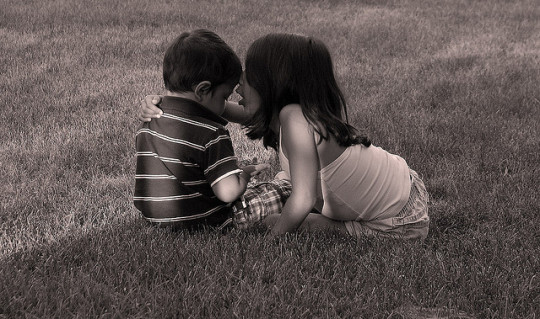
There can’t be a parent alive who hasn’t experienced the excruciating awkwardness of asking a child to say sorry - particularly if the child is reluctant or even too embarrassed to do so.
It’s well documented that it’s actually pretty unwise to demand apologies from children - it can teach them that sincerity isn’t important and that empty words alone can get you out of hot water, for starters - and yet many of us have found ourselves hissing at our children to say sorry when they’ve misbehaved or upset a friend.
But here’s a genuine question. When your child is in the wrong, how important is it to establish whether your child’s wrongdoing was in any way provoked?
If a child lashes out - verbally or physically - is the only important matter that they apologise for their wrongdoing, or are there ever grounds for pausing to check whether mitigating circumstances were in some way the cause of the unacceptable behaviour?
I ask because someone recently asked one of my children to say sorry, and despite the exact details of the incident seeming to have been exaggerated compared to his version of events, my child was happy to apologise.
But I don’t mind admitting that I was less than happy that my child’s ‘side’ of the incident was dismissed as not relevant in the face of his crime. From my child's point of view, the other children involved in the incident had also been at fault. My child's behaviour may have been worse, and he absolutely understood that provocation of any kind is never any justification or excuse for bad behaviour, but I couldn't fault his logic: why weren't the other children also apologising for their own hurtful actions? Was he right to point that out, or is that merely the desperate gesture of a 'guilty' child trying to wriggle out of trouble?
Leaving all of that all aside, I was impressed by my child’s willingness to say sorry, even though he insists that some of the accusations being levelled at him were untrue. It takes great character to say sorry anyway in those circumstances, and I felt he showed his true colours in the end.
But I can’t be alone in believing that ‘bad’ behaviour isn’t usually unprovoked. Sure, some kids lash out for no reason but most verbal or physical misbehaviour in kids is a reaction to something - indeed, psychologists say all behaviour in children is a form of communication. So when asking a child to apologise or when doling out some form of penalty or punishment for unacceptable behaviour, isn’t it reasonable to consider why a child acted in the way they did? And if it turns out that they were driven to a moment of fury by an earlier act of unkindness - or indeed by the cumulative effect of many acts of unkindness - isn’t it ok to acknowledge that? That doesn't mean letting the child off the hook, minimising the effect of their own unkind actions, or even defending their behaviour.
Or does it? By jumping to determine WHY my kid lashed out, am I really just trying to justify his bad behaviour? Do you delve behind your child’s choices to find out what causes bad behaviour, or do you agree with the ‘demand an apology; ask questions later’ school of thought?
My kid has learned - the hard way - that ‘they drove me to it’ won’t cut it when his actions truly upset someone. And while I’m glad he’s also learned that mitigating circumstances or even provocation is no grounds for inexcusable behaviour, I’m going to encourage him to pipe up - instead of lash out - if provoked in future.






















Comments